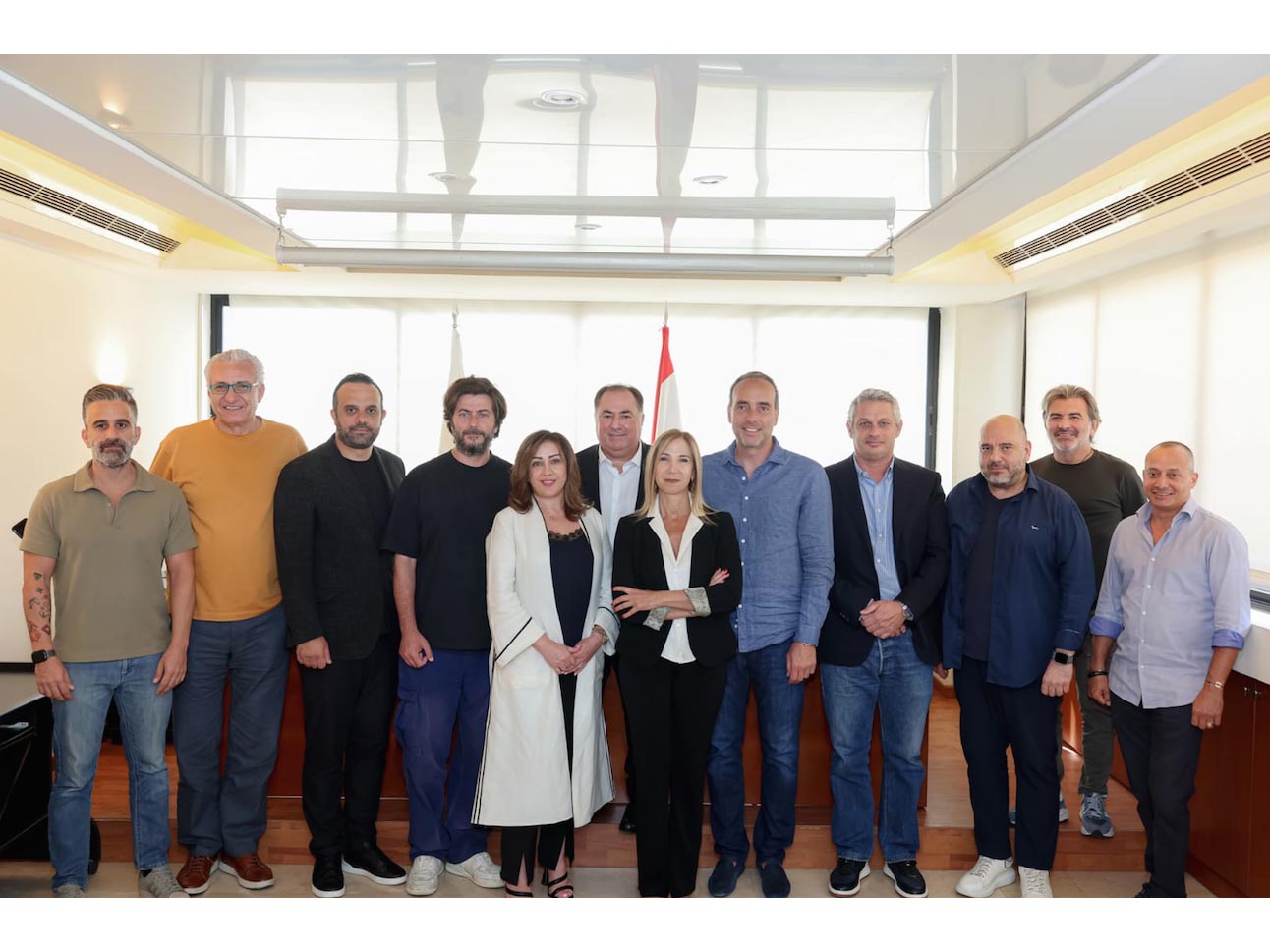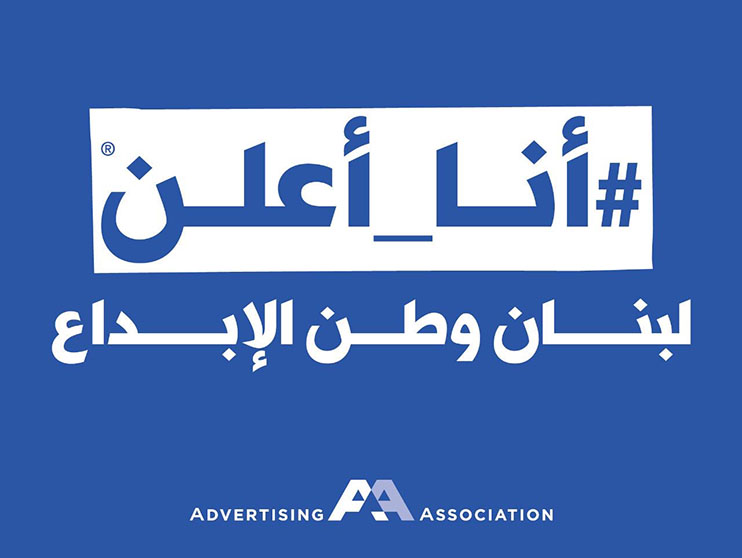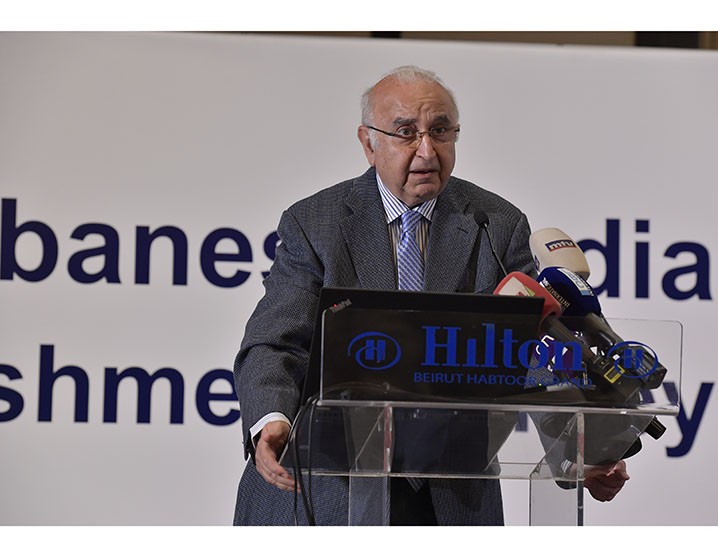News - Advertising
Georges Jabbour: 'United we stand, divided we fall'
by Ghada Azzi
July 7, 2019
.jpg) Advertisement
AdvertisementIt’s been four years since ArabAd’s last interview with Georges Jabbour, the chief executive of MCN Lebanon and the long-running president of Lebanon’s Advertising Association (AA). A lot has happened in those years, although it would be easy to argue that the industry is yet to see the full fruits of his labour.
Jabbour is playing a long game. This is his third term as president. He was first elected in 2011 and presided over the AA for four years until his re-election in 2015. Now he has been re-elected again, with the new term running until 2023.
During his first term he helped revive the AA, broadened membership, and increased representation, before empowering the association to intervene in matters related to the industry during his second term. It was about making “the AA the reference, the real positive catalyst of the industry, and at the same time giving the AA the mediator role between all parties” he says. It is even generating revenue thanks to a 3 per cent levy on all media bookings.
“We all have a common interest as the industry is facing a lot of challenges, constraints, cuts, and even disrespect,” says Jabbour. “We need to be united to face this new challenging era.”
Now his focus is on using the AA’s revenue wisely. That means investing in media research, particularly the measurement of TV, radio and out-of-home audiences, as well as lobbying for an advertising law to be implemented in the country.
Last year Reach Mass was appointed to carry out an establishment survey for the AA’s TV measurement project, with 6,000 households in Lebanon surveyed. “We can say that this starting point, which is the establishment survey, is accomplished now and we will have a yearly update of 1,000 households in order to keep the survey fresh,” says Jabbour. “It’s a work in progress. So let’s say in 10 years’ time we will be doing 18,000 households, which is enormous in proportion to the Lebanese population.”
The AA is also finalising an RFP for radio measurement, with a decision imminent. The likely winner will be Median. Similarly, Cuende, an out-of-home (OOH) measurement company was chosen. “They [the OOH company] base their studies on satellite images that they buy, so you have an average of one image per day that gives you a clear picture of the situation on the roads,” says Jabbour. “This is the latest technology in the world today. And it is a quantum leap in terms of media measurement.
“To make all minds clear, if the AA fails, the money goes to the government – to the Ministry of Labour. We don’t have any interest in keeping any penny. Rather we need every penny to be spent for the sake of the industry.”
“OOH is more complicated because it is a new technology that we are trying out for Lebanon where [we] will need to add some parameters that are inclusive to Lebanon. All global parameters can’t apply here. Like for instance, globally you don’t have to check if the outdoor is lit or not, or behind a tree, because regulations are more strict. So we need to apply local parameters to this.”
The results of all these projects will begin to be published in 2020. Nevertheless, the AA still has contend with critics.
“I was criticised, maybe in 2017, that we were starting to collect funds and weren’t doing anything,” says Jabbour. “First of all, we didn’t start collecting from 2017. We started implementing in 2017 and started invoicing in May 2017, after the VAT declaration of Q1, which is given to you end of April. So all the people that were criticising, well ask them what are their terms of payments. We needed to wait at least 90 days… And I am not the kind of person to make commitments if the money isn’t in the bank.
“To the people who are criticising, we need to remind them that the board comprises 12 members, all of whom have full-time jobs at their own companies. We only have one employee at the AA, who does all the accounting, the follow-ups, the administrative work. To make all minds clear, if the AA fails, the money goes to the government – to the Ministry of Labour. We don’t have any interest in keeping any penny. Rather we need every penny to be spent for the sake of the industry. We are hiring the best companies, we are using the best technologies, we are trying to find the best solutions, because we want the best and want to be pioneers in the region as we have always been.”
With its new initiatives, Jabbour believes the AA is setting new standards within the private sector regionally. He is, however, openly critical of the public sector.
“If we don’t design our own law, someone will design it for us, or we will remain dependent on other laws. And this is not what we want as an ad industry.”
“The advertising industry maybe contributes only 1 per cent to the whole GDP, not more than this,” he says. “And when a field contributing only 1 per cent to the GDP is leading the industry, setting standard and positioning its players as pioneers in the whole MENA region, we ought to wonder what is the public sector doing? So here is a call to all other sectors, specially the public sector, to follow our path. We cannot be so laid back when it comes to the public sector and so advanced when it comes to the private sector.”
This criticism relates to the need for an advertising law in Lebanon as much as anything else. At present several ministries can interfere in advertising related affairs. For example, the Ministry of Interior, Internal Security, the Ministry of Labour, Ministry of Economy, Ministry of Information, Ministry of Health, and the Ministry of Tourism. “If you have a message affecting the youth, for instance, all these bodies may have a say, interfere in our work, and we are not protected,” says Jabbour. “And because we don’t have a law that protects the industry, they are using their laws.”
“We have a law project that we are finalising,” adds Jabbour. “Soon we will send it to concerned parties and follow the right path and hopefully [it will] get approved.
“So for those who claim the freedom of advertising, it is good to know that in the US there is law, in the UK they have a law. In France they have the most strict law in the world, in Germany, Africa, Arab countries, Brazil… Everywhere in the world there is an advertising law.
“In the past we have spent a lot of time not [wanting to] have any law. Today, this is not doable anymore. We want and need our own law. And if we don’t design our own law, someone will design it for us, or we will remain dependent on other laws. And this is not what we want as an ad industry, as our role is ‘to promote and protect the rights, responsibilities and role of advertising’ in Lebanon.”



.jpg)





.jpg)




